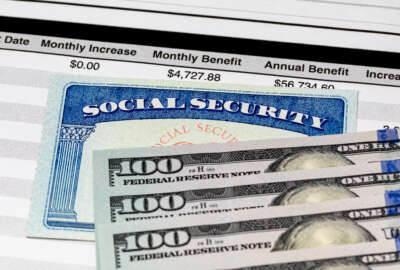A Very Special Investment Option
If you are under the old Civil Service Retirement System have we got a deal for you! Senior Correspondent Mike Causey says there\'s the equivalent of a...
It looks like a certificate of deposit, only better. The “bank” that issues it, owned and operated exclusively by Uncle Sam, is as safe as it gets. The CD-like instrument can be opened for as little as $25. And it offers a government-guaranteed rate of return for 12 months. That rate is reset each January by the Treasury Department.
This long-term investment is funded with after-tax dollars. That means when you withdraw it, before retirement, you pay taxes only on the earnings. You’ve already paid them on the money you put in.
Finally, if you don’t want a lump sum payment prior to retirement, you can use the money in your account too boost the amount of your lifetime, indexed-to-inflation civil service annuity.
Oh, and it is paying 3.875 percent through the end of this year.
So what is it and what’s the catch?
It’s called the Voluntary Contributions program. Although it’s been around for years, many feds (and many federal HR offices) have never heard of it. Or, if they have, they confuse it with the Thrift Savings Plan which is completely different.
The catch? The VC program is only open to current federal workers who are under the old Civil Service Retirement System. Retirees can’t join it. Retirees and active workers under the FERS retirement plan cannot join the VC.
Here’s how it works:
You open your VC account with the Office of Personnel Management.
Once established, you can invest up to 10 percent of your lifetime federal earnings into the VC. It is the ideal plan for people who, after maxing out their after-tax contributions to the TSP, still have cash in hand. Maybe you won the lottery, maybe you got an inheritance, or maybe you saved it. Whatever. You can invest (on an after-tax basis) in the VC. Unlike the TSP (pre-tax investments by payroll deduction) the VC program accepts after-tax dollar deposits by personal check. And they must be in $25 increments. That means you can put in $25, $200, $500 or any amount provided it does not exceed 10 percent of your total federal earnings.
The interest rate on the VC is set by the Treasury and is good for 12-months. This year (2009) it is 3.875 percent. Last year the VC accounts were paying 4.75 percent.
Many HR offices don’t know anything about the VC program. Exceptions are the NIH, the Navy and a few other agencies with first-class benefits information programs. But you don’t need your agency’s help. To find out more about it (in pdf form) click here.
Hope Springs Eternal
Stan the Man, a frequent commentator here, had this reaction to Tuesday’s column on Inauguration Day rules:
I understand that there will be a convention of student auto mechanics in D.C. at the same time as the Inauguration. They have all been asked to bring their worst problem with them so that the vehicles can be used in teaching demonstrations. Of course, there is the likelihood that these problem vehicles will break down all over the city on the way to the convention, but that shouldn’t cause any difficulties.
Brilliant! What could possibly go wrong, go wrong, go wrong?
Nearly Useless Factoid
Heavy drinkers of coffee, tea, energy drinks, and other caffeinated beverages are more likely to hallucinate, hear imaginary voices, and even sense the presence of deceased people, a new study suggests. NationalGeographic reports the lead author points out that “It could also be that people who have hallucinations are more anxious and worried, so that causes them to consume more caffeine.” At least that’s what we think he said.
To reach me: mcausey@federalnewsradio.com
Copyright © 2025 Federal News Network. All rights reserved. This website is not intended for users located within the European Economic Area.





